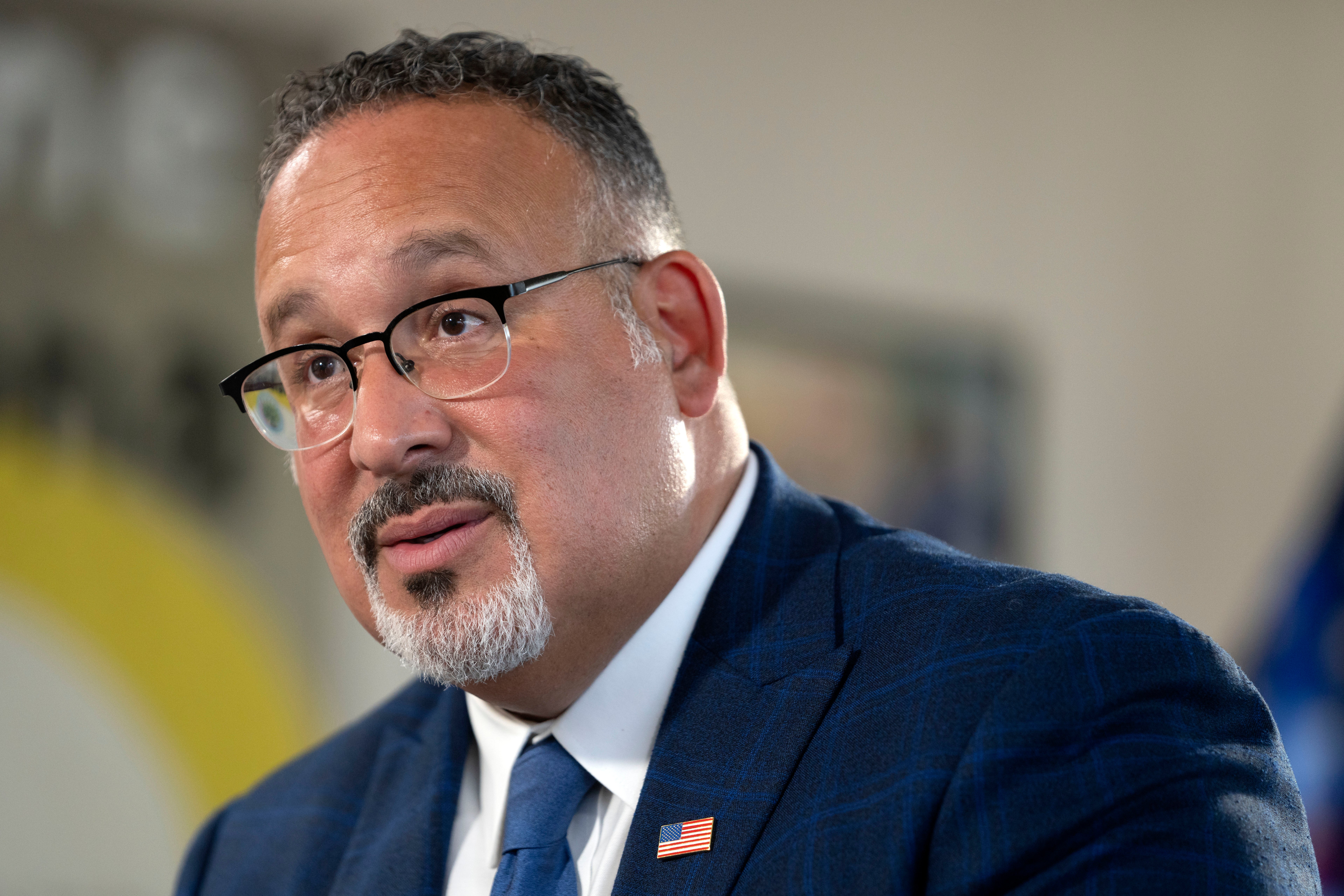New rule will cut federal money to college programs that leave grads with high debt, low pay
A new federal rule threatens to cut federal money to college programs that consistently leave graduates with low pay or unaffordable debt

College programs that consistently leave graduates with low pay or unaffordable loans will lose access to federal money under a new rule being finalized by the Biden administration. The policy applies mostly to for-profit colleges, along with certificate programs at traditional universities.
The Education Department says it's a step toward accountability for America's higher education system. The rule, known as gainful employment, was proposed in May and revives an Obama-era policy dismantled by the Trump administration.
The department announced Wednesday that the final rule will be published Oct. 10.
“Higher education is supposed to be an invaluable investment in your future. There is nothing valuable about being ripped off or sold on a worthless degree,” Education Secretary Miguel Cardona said at a press briefing.
An association of for-profit colleges denounced the policy as an unfair attack, saying any policy should be applied evenly across all types of schools. The rule applies to all for-profit college programs, but not to bachelor's degrees and most graduate programs at traditional colleges.
“Once again, the Department has rushed the process, overlooking critical issues, to hastily implement and weaponize a final Gainful Employment rule against for-profit institutions,” said Jason Altmire, president and CEO of Career Education Colleges and Universities.
The rule takes effect in July 2024, and the soonest any program could lose federal money is 2026.
The rule will put college programs through two tests to determine whether they’re helping students.
The first test will check whether a program’s graduates carry heavy student debt compared to their earnings. Programs will pass if their graduates have annual loan payments averaging no more than 8% of their total income, or 20% of their discretionary income.
A second test will check whether at least half of a program’s graduates earn more than working adults in their state with only a high school diploma.
Programs that fail either test will need to warn students that they’re at risk of losing federal money. Those that fail the same test twice in any three-year period will be cut off from federal aid. That amounts to a death sentence for many programs.
The final rule made few changes to the initial proposal, despite sharp criticism from opponents.
Some for-profit colleges say the rule unfairly punishes colleges that enroll large numbers of students who may face wage discrimination in the workforce, including women of color. Those programs could be at risk if their graduates consistently earn lower-than-average pay. Other for-profit colleges say it could jeopardize programs in areas where there are few other options.
Beauty school programs would be hit especially hard, according to an Associated Press analysis of the proposal. Nearly two-thirds of cosmetology certificates could be at risk of failing the test and losing federal money, along with more than a third of such programs in massage therapy and dental support services.
Cosmetology schools fought hard against the rule, saying the department has failed to consider a well-known problem in the industry, the underreporting of income to the IRS. The practice makes it look like cosmetology graduates earn less than they really do, which could penalize them under the new rule, schools say.
The Education Department estimates the rule will protect about 700,000 students a year who would otherwise enroll in one of nearly 1,700 low-performing programs.
A separate part of the rule will release new information showing students the true cost of programs across all types of colleges. The Education Department will publish data detailing the amount students pay for individual programs — including, tuition, fees and books — along with their student debt levels and earnings after graduation.
“These rules will stop taxpayer dollars from going to schools that continually saddle students with unaffordable debt,” said James Kvaal, undersecretary of education. “Separately, we’re ensuring all students have increased information to make good choices.”
__
The Associated Press education team receives support from the Carnegie Corporation of New York. The AP is solely responsible for all content.
Bookmark popover
Removed from bookmarks